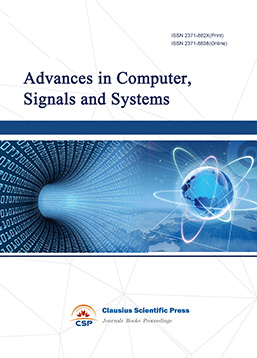The potential and risks of artificial intelligence in promoting personalized learning
DOI: 10.23977/jaip.2025.080112 | Downloads: 37 | Views: 1009
Author(s)
Jiang Qiang 1
Affiliation(s)
1 Zhejiang Yuexiu University, Shaoxing, Zhejiang, China
Corresponding Author
Jiang QiangABSTRACT
As a significant advancement in the field of technology, Artificial Intelligence (AI) has achieved automation of specific tasks by simulating and enhancing human cognitive functions. In the field of education, AI has notably promoted the development of personalized learning. By analyzing learning data, AI can identify students' learning patterns and provide targeted academic guidance, enabling real-time feedback and dynamic adjustments to learning content. Additionally, AI offers personalized learning resources and auxiliary tools to enhance motivation and efficiency in learning. However, the application of AI in personalized learning also faces risks such as privacy and data security, algorithmic bias, and educational equity. To address these challenges, strict data protection measures must be taken to ensure algorithmic fairness and to promote the equitable distribution of educational resources.
KEYWORDS
Artificial Intelligence (AI), personalized learning, data security, educational equityCITE THIS PAPER
Jiang Qiang, The potential and risks of artificial intelligence in promoting personalized learning. Journal of Artificial Intelligence Practice (2025) Vol. 8: 86-91. DOI: http://dx.doi.org/10.23977/jaip.2025.080112.
REFERENCES
[1] Russell, S., & Norvig, P. (2016). Artificial Intelligence: A Modern Approach. Pearson.
[2] Turing, A. M. (1950). Computing machinery and intelligence. Mind, 59(236), 433-460.
[3] LeCun, Y., Bengio, Y., & Hinton, G. (2015). Deep learning. Nature, 521(7553), 436-444.
[4] IBM. (2017). Watson Education. Retrieved from https://www.ibm.com/watson/education
[5] Kumar, N. S. (2019). Implementation of artificial intelligence in imparting education and evaluating student performance. Journal of Artificial Intelligence, 1(01), 1-9.
[6] Roll, I., & Wylie, R. (2016). Evolution and revolution in artificial intelligence in education. International Journal of Artificial Intelligence in Education, 26(2), 582-599.
[7] Knewton. (2018). Alta. Retrieved from https://www.knewton.com/alta
[8] Hirschberg, J., & Manning, C. D. (2015). Advances in natural language processing. Science, 349(6245), 261-266.
[9] Timms, M. J. (2016). Letting artificial intelligence in education out of the box: Educational cobots and smart classrooms. International Journal of Artificial Intelligence in Education, 26(2), 701-712.
[10] Dede, C. (2017). Emerging technologies and distributed learning. American Journal of Distance Education, 31(2), 122-136.
[11] Binns, R., Veale, M., Van Kleek, M., & Shadbolt, N. (2018). It's Reducing a Human Being to a Percentage: Perceptions of Justice in Algorithmic Decisions. Proceedings of the 2018 CHI Conference on Human Factors in Computing Systems, 1-14.
[12] Noble, S. U. (2018). Algorithms of Oppression: How Search Engines Reinforce Racism. NYU Press.
[13] Warschauer, M., & Matuchniak, T. (2019). New Technology and Digital Worlds: Analyzing Evidence of Equity in Access, Use, and Outcomes. Review of Research in Education, 34(1), 179-225.
[14] Selwyn, N. (2019). Should Robots Replace Teachers? AI and the Future of Education. Polity Press.
[15] Protection, F. D. (2018). General data protection regulation (GDPR). Intersoft Consulting, Accessed in October, 24(1).
[16] Gupta, R., Saxena, D., & Singh, A. K. (2021). Data security and privacy in cloud computing: concepts and emerging trends. arXiv preprint arXiv:2108.09508.
[17] Binns, R. (2018). Fairness in machine learning: Lessons from political philosophy. In Proceedings of the 2018 Conference on Fairness, Accountability, and Transparency (pp. 149-159).
[18] Diakopoulos, N. (2016). Accountability in algorithmic decision making. Communications of the ACM, 59(2), 56-62.
[19] Williamson, B. (2017). Big data in education: The digital future of learning, policy and practice. Sage.
[20] Luckin, R., Holmes, W., Griffiths, M., & Forcier, L. B. (2016). Intelligence unleashed: An argument for AI in education. Pearson.
[21] Robinson, K. (2011). Out of Our Minds: Learning to be Creative. Hardcover.
[22] Holmes, W., Bialik, M., & Fadel, C. (2019). Artificial intelligence in education: Promises and implications for teaching and learning. Center for Curriculum Redesign.
| Downloads: | 17436 |
|---|---|
| Visits: | 642096 |
Sponsors, Associates, and Links
-
Power Systems Computation

-
Internet of Things (IoT) and Engineering Applications

-
Computing, Performance and Communication Systems

-
Advances in Computer, Signals and Systems

-
Journal of Network Computing and Applications

-
Journal of Web Systems and Applications

-
Journal of Electrotechnology, Electrical Engineering and Management

-
Journal of Wireless Sensors and Sensor Networks

-
Journal of Image Processing Theory and Applications

-
Mobile Computing and Networking

-
Vehicle Power and Propulsion

-
Frontiers in Computer Vision and Pattern Recognition

-
Knowledge Discovery and Data Mining Letters

-
Big Data Analysis and Cloud Computing

-
Electrical Insulation and Dielectrics

-
Crypto and Information Security

-
Journal of Neural Information Processing

-
Collaborative and Social Computing

-
International Journal of Network and Communication Technology

-
File and Storage Technologies

-
Frontiers in Genetic and Evolutionary Computation

-
Optical Network Design and Modeling

-
Journal of Virtual Reality and Artificial Intelligence

-
Natural Language Processing and Speech Recognition

-
Journal of High-Voltage

-
Programming Languages and Operating Systems

-
Visual Communications and Image Processing

-
Journal of Systems Analysis and Integration

-
Knowledge Representation and Automated Reasoning

-
Review of Information Display Techniques

-
Data and Knowledge Engineering

-
Journal of Database Systems

-
Journal of Cluster and Grid Computing

-
Cloud and Service-Oriented Computing

-
Journal of Networking, Architecture and Storage

-
Journal of Software Engineering and Metrics

-
Visualization Techniques

-
Journal of Parallel and Distributed Processing

-
Journal of Modeling, Analysis and Simulation

-
Journal of Privacy, Trust and Security

-
Journal of Cognitive Informatics and Cognitive Computing

-
Lecture Notes on Wireless Networks and Communications

-
International Journal of Computer and Communications Security

-
Journal of Multimedia Techniques

-
Automation and Machine Learning

-
Computational Linguistics Letters

-
Journal of Computer Architecture and Design

-
Journal of Ubiquitous and Future Networks


 Download as PDF
Download as PDF